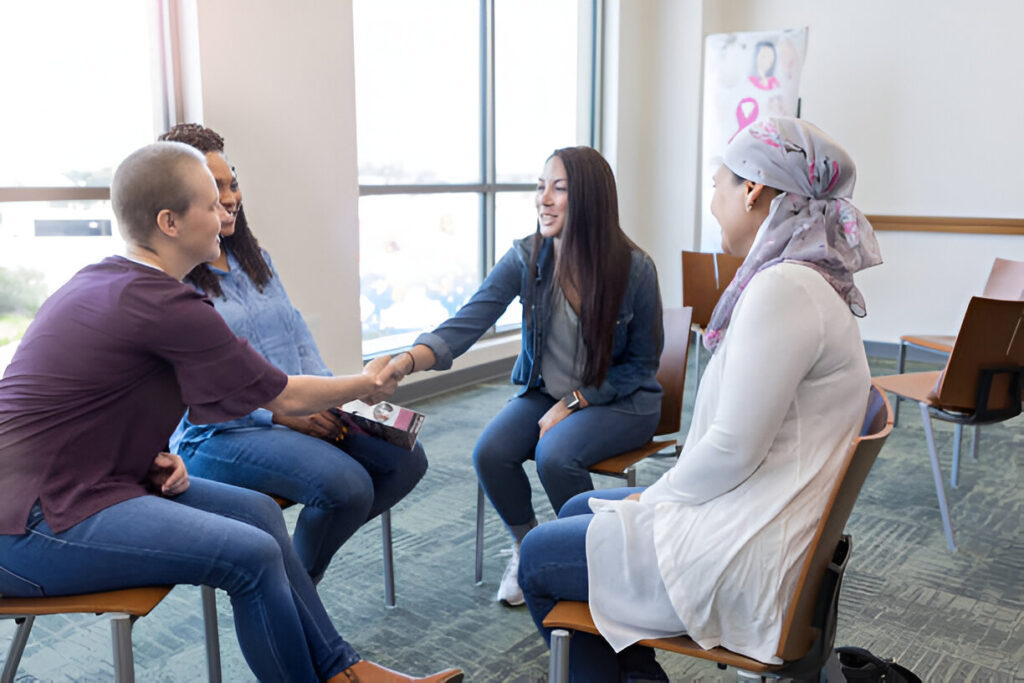Table of Contents
- Introduction
- The Power of Community
- Types of Support Groups
- Benefits of Attending Support Groups
- Steps to Find the Right Support Group
- Personal Stories of Transformation
- How to Get the Most Out of Meetings
Introduction
Finding a community where you feel supported can be transformative in times of hardship. Despite the stress and isolation that often accompany struggles such as addiction, community groups provide a beacon of hope and connection. Community groups, such as AA group Near Me meetings, offer a space where individuals can exchange their experiences and seek comfort in the collective path to healing. These groups do more than provide a listening ear – they offer practical resources, strategies, and an environment that promotes long-term recovery. Through interaction with a network of help, people can foster a feeling of inclusion and diminish the loneliness that frequently comes with adversities in life. The goal is to manage one’s condition and thrive despite it. Support groups have been shown to significantly improve both physical and emotional health outcomes, making them a critical part of many recovery journeys.
The Power of Community
There is undeniable power in human connection. Engaging with a support group can significantly impact mental and emotional well-being. These groups unite people who have shared experiences. Research has shown that community support is linked to lower stress levels, improved coping mechanisms, and a higher sense of personal well-being.
Additionally, belonging to a support group fosters a sense of accountability and motivation among its members. Knowing that others know your goals and progress can significantly enhance your commitment to recovery. The communal aspect also allows for exchanging practical advice and solutions, which can be invaluable when facing day-to-day challenges.
Types of Support Groups
When it comes to recovery, not all support groups are the same. Here are a few common types:
- 12-Step Programs: These include AA and similar organizations, which follow a structured program for sobriety. The 12-step process involves admitting powerlessness over the addiction, making amends for past wrongdoings, and promoting spiritual and personal growth.
- Non-12-Step Programs: These may focus on different approaches to recovery, such as SMART Recovery or Refuge Recovery. SMART (Self-Management and Recovery Training) Recovery emphasizes self-empowerment and scientifically based methods, while Refuge Recovery integrates Buddhist principles into the healing process.
- Online Support Groups: Online communities provide a convenient alternative for people who cannot physically be present. These groups can give equal support and connection as face-to-face meetings.
Benefits of Attending Support Groups
Attending regular meetings can offer numerous benefits beyond immediate emotional relief:
- Emotional Support: Sharing experiences helps reduce feelings of isolation. Hearing others express similar thoughts and feelings can be comforting, as you know you are not alone in your struggles.
- Accountability: Regular meetings encourage members to stay committed to their recovery journey. The sense of responsibility towards fellow group members can motivate individuals to adhere to their recovery plans.
- Shared Resources: Group members often share personal strategies and resources for overcoming obstacles, including advice on managing triggers and stressors, health tips, and recommendations for additional support services.
Steps to Find the Right Support Group
It may require some experimentation to find a suitable group. Here are steps to help you get started:
- Research Different Types: Understand the differences between 12-step and non-12-step programs. Each type offers unique approaches and philosophies, so finding a program that aligns with your personal beliefs and recovery goals is essential.
- Attend a Few Meetings: Test out a few groups to find one where you feel comfortable. Only some groups will be the right fit, and you must feel like you belong to engage with the community effectively.
- Ask for Recommendations: Seek advice from healthcare providers or friends with support group experience. Their insights can guide you toward reputable and beneficial groups.
- Check Online Resources: Websites provide directories and explanations to guide you. These resources can help you understand what to expect and how to prepare for your first meetings.
Personal Stories of Transformation
Listening to individuals who have encountered comparable hurdles can be very motivating. Many individuals share their personal stories of recovery, demonstrating the life-changing impact of consistent support group attendance. These narratives often encourage newcomers and offer hope for long-term recovery. Stories of transformation highlight the resilience of the human spirit and the positive change that comes with dedication and community support.
For instance, someone might share how they regained control of their life after years of struggling with addiction. These personal accounts serve as a reminder that recovery is possible and that support groups can play a vital role in this process. Every story adds to the group’s collective wisdom, providing diverse perspectives and solutions to common challenges.
How to Get the Most Out of Meetings
Maximizing the benefit of support group meetings involves active participation:
- Be Open: Share your experiences honestly to connect with others. Openness fosters trust and deeper connections within the group, which can be crucial for adequate support.
- Listen Actively: Focus on understanding and empathizing with others’ experiences. Active listening shows respect and helps build a supportive atmosphere.
- Follow Through: Apply the shared strategies and advice in your own life. The practical tips and coping mechanisms discussed in meetings can be highly beneficial when applied consistently.
- Attend Regularly: Consistency is critical to building strong, supportive relationships. Regular attendance helps establish routine and ongoing motivation to focus on recovery goals.

